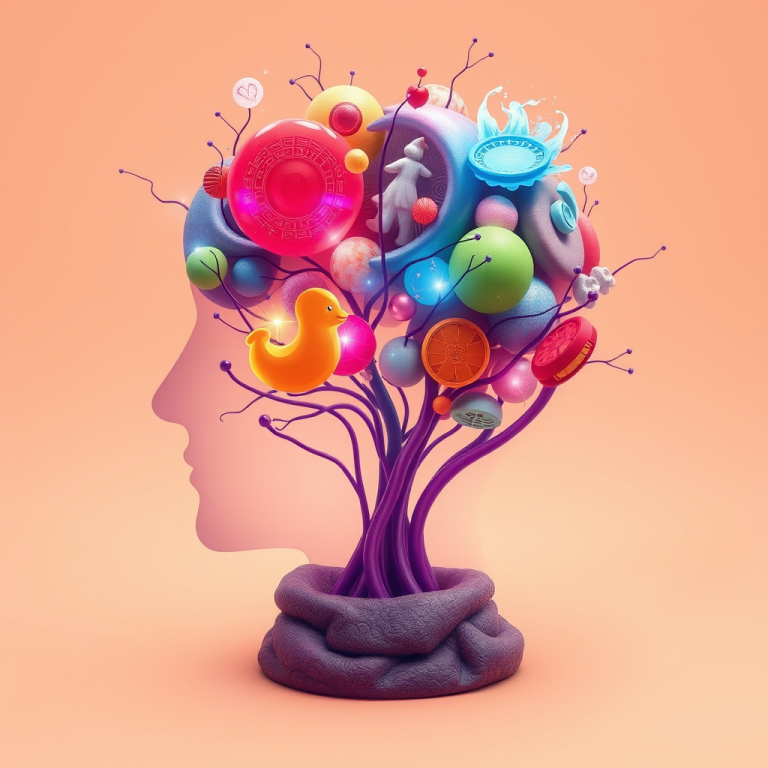The Conflicting Harsh Psychology of Misinterpreting Patriotism
Introduction to Patriotism
Understanding Patriotism
Patriotism is a deeply rooted sentiment that binds individuals to their nation. It inspires loyalty, pride, and a sense of belonging.
Importance of Patriotism
While genuine patriotism promotes unity and collective welfare, it can be misinterpreted and lead to divisive and harmful outcomes. Understanding the psychology behind these misinterpretations is crucial to fostering a healthy sense of national pride.
The Essence of Patriotism
Love and Devotion
At its core, patriotism is the love and devotion one feels towards their country. It is expressed through a sense of responsibility and commitment to the nation’s values and ideals.
Positive Patriotism
This positive form of patriotism encourages citizens to contribute to their community, uphold democratic principles, and work towards the common good.

Misinterpretations of Patriotism
Nationalism vs. Patriotism
Misinterpreting patriotism often stems from cognitive biases and social influences. When individuals equate patriotism with nationalism, they risk fostering exclusionary attitudes and xenophobia.
Consequences of Misinterpretation
Nationalism, unlike patriotism, prioritizes national interests above all else, often leading to a sense of superiority and hostility towards other nations.
Cognitive Biases and Patriotism
Confirmation Bias
Cognitive biases play a significant role in how people perceive and interpret patriotism. Confirmation bias, for instance, leads individuals to seek out information that aligns with their preexisting beliefs about their country.
In-Group Bias
Similarly, the in-group bias causes individuals to favor their own nation while viewing other countries with suspicion or disdain.

Social Influences on Patriotism
Political Rhetoric
Social influences, such as political rhetoric and media portrayals, can shape one’s understanding of patriotism. Politicians and media outlets may exploit patriotic sentiments to advance specific agendas.
Media Portrayals
This creates a narrative that equates loyalty with conformity and dissent with disloyalty, leading to the suppression of critical thinking and the marginalization of diverse perspectives.
The Impact of Misinterpreting Patriotism
Individual and Societal Consequences
The misinterpretation of patriotism can have profound consequences on both individual and societal levels. It can lead to the erosion of democratic values, social cohesion, and international relations.
Intolerance and Dissent
Individuals who view dissent as unpatriotic may become intolerant of differing viewpoints, stifling constructive dialogue and progress.
Erosion of Democratic Values
Importance of Diverse Opinions
A healthy democracy thrives on diverse opinions and open debate. When patriotism is misinterpreted as blind loyalty, it undermines the principles of freedom of speech and critical inquiry.
Rewarding Conformity
This erosion of democratic values can create an environment where dissent is punished and conformity is rewarded, stifling innovation and progress.
Strained International Relations
Alienating Allies
Misinterpreting patriotism can strain international relations. Nations that adopt an aggressive, nationalist stance may alienate their allies and provoke conflicts.
Cycle of Hostility
This can lead to a cycle of hostility and mistrust, making it difficult to address global challenges collaboratively.
Fostering a Healthy Patriotism
Promoting Critical Thinking
To foster a healthy sense of patriotism, it is essential to promote critical thinking, inclusivity, and empathy. Encouraging individuals to question and analyze their beliefs can help prevent the misinterpretation of patriotism.
Education and Critical Thinking
Role of Education
Education plays a vital role in fostering critical thinking and preventing cognitive biases. By teaching individuals to question and evaluate information critically, we can help them develop a more balanced and informed perspective on patriotism.

Embracing Inclusivity and Empathy
Recognizing Diverse Perspectives
Inclusivity and empathy are key to fostering a healthy sense of patriotism. By recognizing and valuing diverse perspectives, individuals can develop a more inclusive and compassionate view of their nation.
Bridging Divides
This inclusivity can help bridge divides and promote social cohesion.
The Role of History in Shaping Patriotism
Learning from the Past
Understanding the history of one’s country is essential in shaping a balanced view of patriotism. Historical events, both positive and negative, contribute to the collective national identity.
Celebrating Achievements
Acknowledging and celebrating the positive achievements of a nation can inspire pride and unity. It is essential to balance this with a critical understanding of history to avoid glorifying problematic aspects.
The Influence of Cultural Identity on Patriotism
Embracing Cultural Diversity
Cultural identity plays a significant role in shaping one’s perception of patriotism. A diverse cultural landscape can enrich national pride and foster inclusivity.
Promoting Cross-Cultural Understanding
Recognizing and valuing cultural diversity within a nation can strengthen the sense of belonging and unity. Encouraging cross-cultural understanding and dialogue can bridge divides and foster mutual respect.

The Role of Education in Shaping Patriotism
Curriculum Development
Education is a powerful tool in shaping one’s understanding of patriotism. A well-rounded education can promote critical thinking and prevent cognitive biases.
Encouraging Critical Inquiry
Incorporating lessons on history, civics, and ethics into the curriculum can provide students with a comprehensive understanding of patriotism. Teaching students to question and analyze information critically can prevent the formation of skewed perceptions.
The Impact of Globalization on Patriotism
Fostering Global Citizenship
Globalization has a profound impact on national identity and patriotism. It creates opportunities for cross-cultural exchanges and challenges traditional notions of patriotism.
Navigating National Identity
Globalization encourages individuals to view themselves as global citizens, promoting empathy and understanding across borders. While embracing global citizenship, it is essential to navigate and preserve national identity.
Conclusion on Patriotism
Preventing Misinterpretation
Understanding the psychology of misinterpreting patriotism is essential to fostering a healthy and inclusive national identity. By addressing cognitive biases, social influences, and promoting critical thinking, we can prevent the negative consequences of misinterpreting patriotism.
Working Towards Unity
Fostering a healthy sense of patriotism can lead to a more united and compassionate world, where diverse perspectives are valued and respected.
Join the Discussion
Share Your Thoughts
How do you see patriotism being expressed in your community? Have you witnessed any instances where patriotism was misinterpreted or conflated with nationalism? Your experiences and insights are invaluable in fostering a deeper understanding of this complex topic.








I’m really inspired along with your writing skills as neatly as with the layout to your weblog.
Is this a paid topic or did you customize it yourself? Either way stay up
the nice quality writing, it’s rare to see a great blog like this one today.
Fiverr Affiliate!
Aw, this was an exceptionally good post. Taking a few minutes
and actual effort to create a very good article… but what can I say… I hesitate a lot and never
manage to get nearly anything done.